On October 15th 2019, while doing field work in the Yukon, Pascale spoke with Radio-Canada’s Phare Ouest host, Marie Villeneuve, about her permafrost research in the Yukon and the recent $5.5 M funding received by PermafrostNet.
You are browsing archives for
Category: Funding announcement
Pascale en entrevue à Radio-Canada avec Frédéric Projean
On September 6th, 2019, Pascale visited the Radio-Canada studios in Sudbury, to discuss PermafrostNet with Frédéric Projean at ‘Les matins du Nord’. The interview can be heard on their website at by following this link.
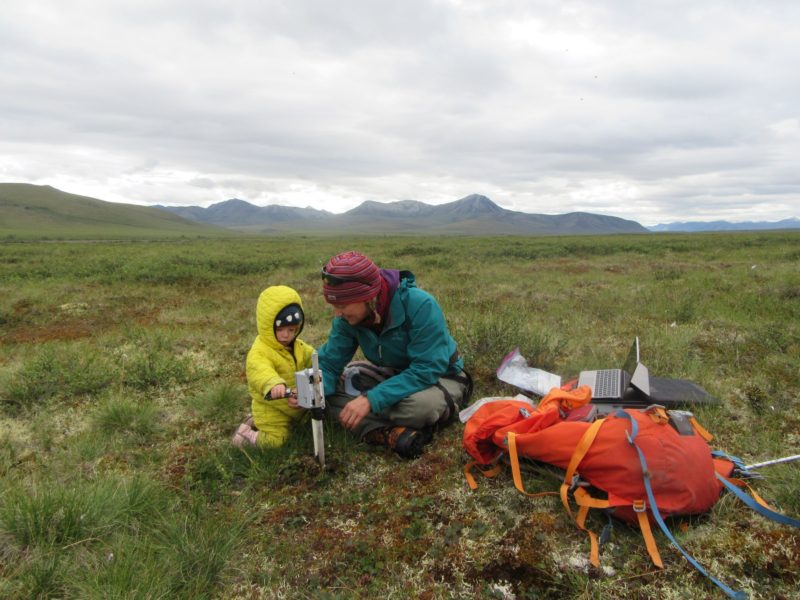
NSERC funds PermafrostNet as a Strategic Partnership Network!
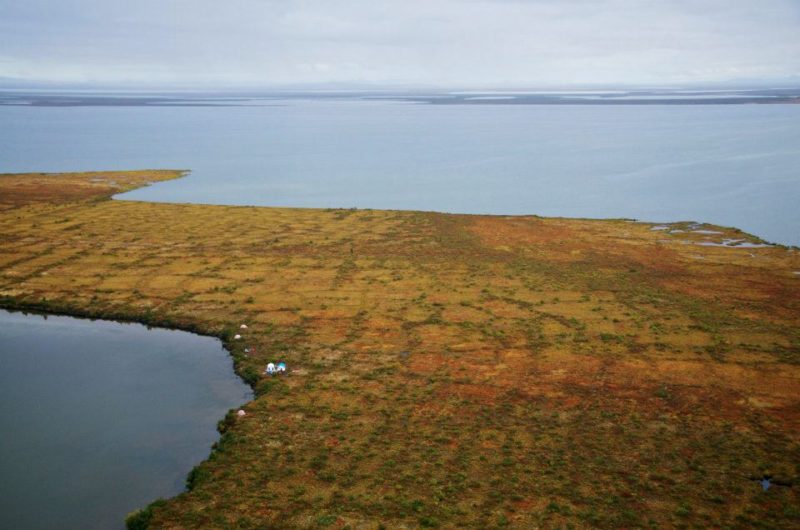
The Natural Sciences and Engineering Research Council of Canada (NSERC) will provide more than $5 million over five years to fund PermafrostNet, a Canadian research network of 12 universities, including Laurentian University, and more than 40 partner organizations. “The network focuses on permafrost degradation to determine where, when, and how permafrost thaw is occurring and what are the consequences of this thaw for northern infrastructure and northerners across the Canadian North” says Dr. Pascale Roy-Leveillee of the Laurentian University Permafrost Research Laboratory, one of the Network co-principal investigators.
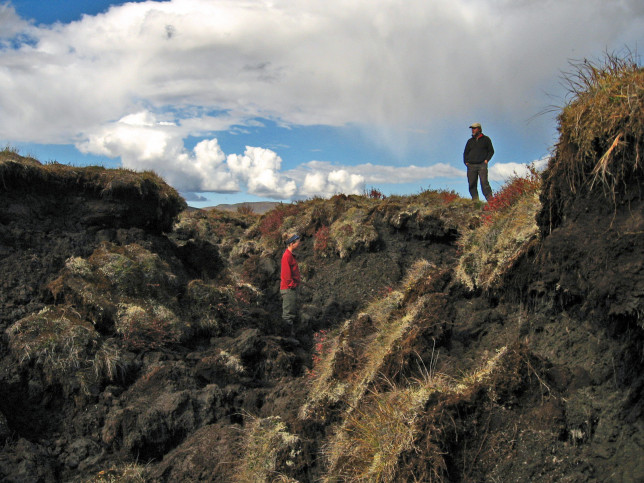
Permafrost underlies more than one-third of the Canadian land surface and nearly all of it will experience thaw during the 21st century. The resulting disruption to natural and human systems will influence the lives of northerners and access to natural resources.

The network research will focus on 5 themes: 1) characterization of permafrost, to fill important gaps in our knowledge of Canadian permafrost extent and characteristics (11 students); 2) monitoring, to ensure we have the means to detect and quantify change in permafrost conditions (8 students); 3) prediction, to improve simulations of changing permafrost and integration with Global Climate Models, and to insure stakeholders can use the model outputs (8 students); 4) hazards, to understand what impacts the observed and predicted permafrost degradation can have on infrastructure, environmental resources, ecosystems and health (9 students); 5) adaptation to permafrost degradation, to support northerners as they prepare for and deal with permafrost thaw and its consequences (9 students).
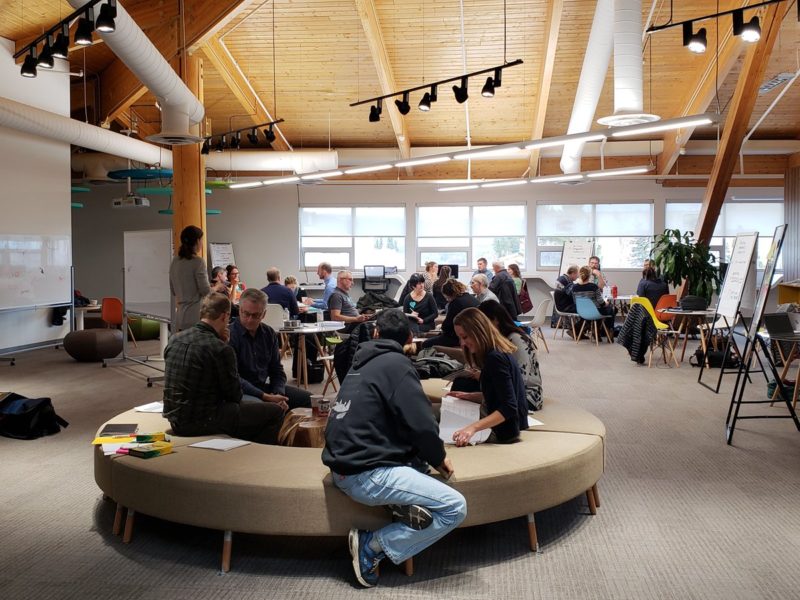
“The network has the research capacity that no single group or agency can provide and can transform knowledge and practice on a national scale to position Canada as a leader in permafrost research” Indicates Dr. Stephan Gruber, the PermafrostNet Lead, who is professor and Canada Research Chair in Climate Change Impacts/Adaptation in Northern Canada at Carleton University.
The objective of the highly competitive NSERC Strategic Partnership Grants for Networks is to increase research and training in targeted areas, contributing to a better quality of life in Canada. Only two networks were funded this year across Canada
Winter Carbon Losses in Wetland Ecosystems project funded!
Canada’s Minister of Environment and Climate Change, the Honourable Catherine McKenna, has announced the recipient projects of the highly competitive “Advancing Climate Change Science in Canada” initiative.
Two members of the Laurentian University Permafrost Research Laboratory, Dr. Pascale Roy-Leveillee and Dr. Nathan Basiliko, are part of one of the only nine funded projects announced today.
The project, Winter Carbon Losses in Wetland Ecosystems under Current and Future Climates, was awarded $468,500 over a period of three years. The project is led by Dr. Fereidoun Rezanezhad of University of Waterloo’s Water Institute, and the co-investigators on this award are Pascale Roy-Leveillee and Nathan Basiliko (Laurentian University), William Quinton (Wilfrid Laurier University), Christina Smeaton (Grenfell Campus, Memorial University), Philippe Van Cappellen, Jonathan Price, and Nancy Goucher (University of Waterloo). The Canadian Forest Service Great Lakes Forestry Centre, Natural Resources Canada is a supporting organization through Kara Webster.
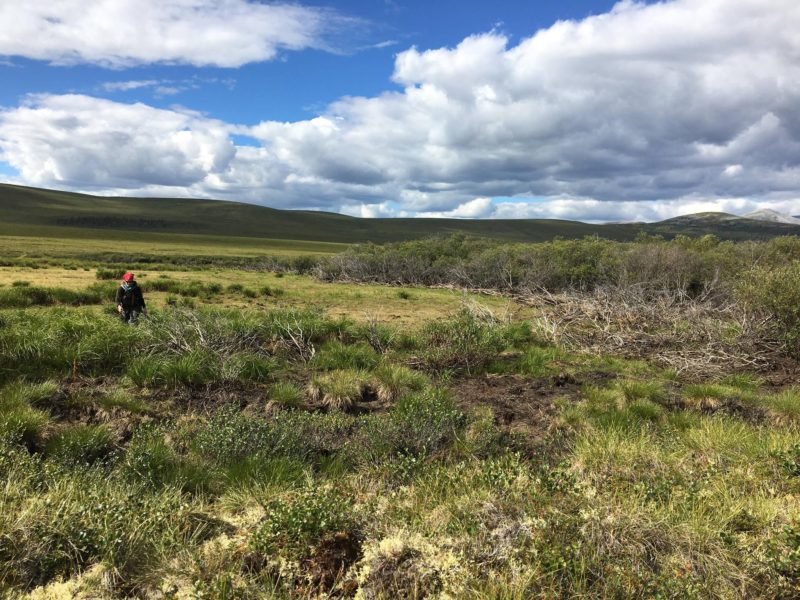
Project description: High latitude cold regions, including Arctic and northern areas of Canada, are warming more than twice as fast as the rest of the planet, with the greatest warming occurring during the winter. Canada’s temperate to subarctic wetlands and permafrost peatlands hold large stores of carbon which are susceptible to loss under future climate warming scenarios. Therefore, understanding the factors which regulate the processes controlling greenhouse gas emissions during the non-growing season is critical for predicting the fate of these vulnerable carbon stocks and for creating climate adaptation and mitigation strategies. With a focus on these critical ecosystems, the project brings together Canadian leaders from multiple disciplines from across universities with federal government scientists and policy makers to determine the drivers of non-growing season carbon cycling, develop process-based environmental models, and estimate CO2 emissions. In doing so, the project will address the knowledge gaps on emissions to provide data and tools to evaluate the impact of winter warming mitigation in controlling carbon losses from pan-Canadian wetland ecosystems.
Do you want to join the permafrost team at Laurentian University? We have several openings, please see our list of open funded positions.